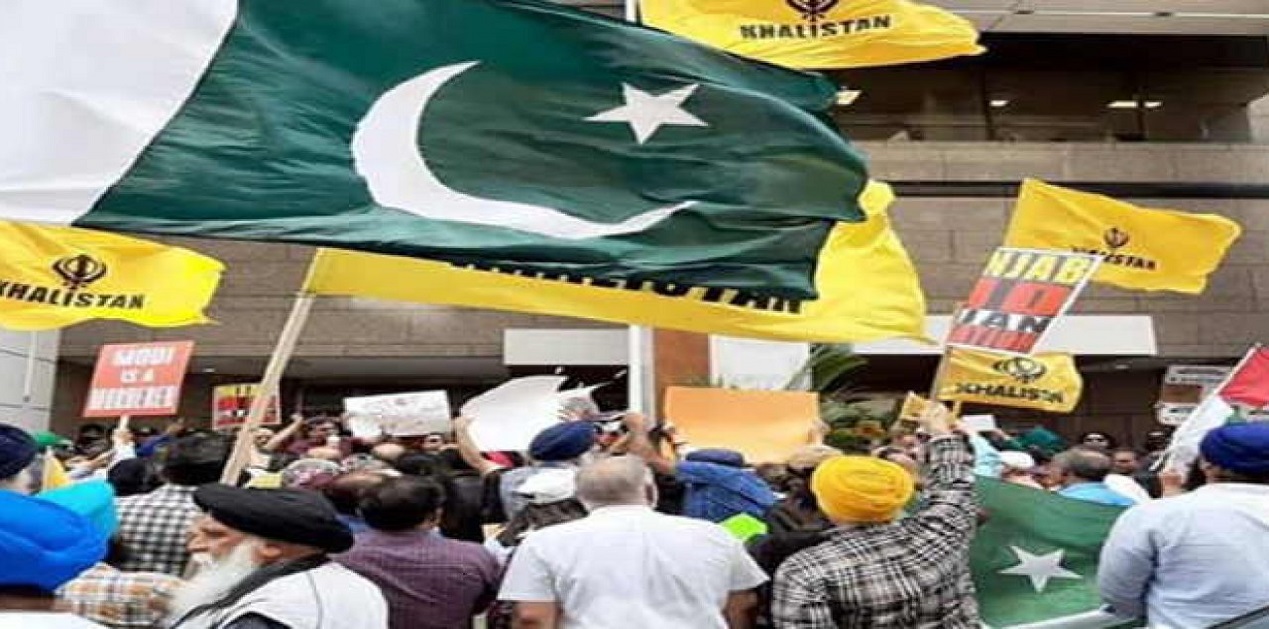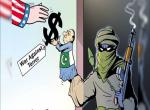सर्पो दंशति काले तु दुर्जनस्तु पदे पदे॥
(English Translation: “Of a Crook and a Snake, the Snake is the better of the two, for s/he strikes only at the time s/he is destined to kill, while the Crook at every step)
On 06 May 2023, Paramjit Singh Panjwar, aka Malik Sardar Singh, was killed by two unidentified assailants while walking near his residence in Lahore, Pakistan. For the intelligence fraternity and security experts, Panjwar was seen as a prominent figure in the Khalistan movement in Punjab, Bharat, during the 1980s and early 1990s, where he played a significant role in shaping the trajectory of the movement. In 2018, Bharat declared the KCF as a proscribed terror organisation under the Unlawful Activities (Prevention) Act [UA(P)A], 1967. Along with the KCF’s future, this write-up discusses the circumstances surrounding his killing and highlights the role of Panjwar in building KCF and terrorism in Punjab.
The Assassination of Panjwar
On the morning of 06 May 2023, Panjwar met his fate when two unidentified gunmen shot him and his bodyguard while walking at Sun-Flower Housing Society in Jauhar Town, Lahore, Pakistan. “The gunmen shot Panjwar Singh in his head. He was pronounced dead on arrival at the hospital,” said a senior officer of Punjab Police, Pakistan.[2] Panjwar’s bodyguard succumbed to injuries later. The killing of Panjwar raised some questions as Pakistan’s intelligence agencies, including Inter-Services Intelligence (ISI), Military Intelligence (MI), and Counter-Terrorism Department (CTD), had cordoned off the area and kept media away from the crime scene.[3]
In February 2023, Hizb ul- Mujahideen (HM) terrorist Bashir Ahmed Peer was killed in Rawalpindi, Pakistan by unidentified gunmen. In another incident, former commander of Pakistan-based terror group Al-Badr— Syed Khalid Raza was also killed outside his residence in Karachi in February this year. Pakistan’s law-enforcement agencies initiated investigations into these killings, but no results of those investigations were made public. Similarly, in the case of Panjwar’s assassination, neither the investigation agencies have provided further details, nor has any extremist group claimed responsibility for the killing. It is possible to draw several inferences from the similarity of modus operandi adopted in abovementioned killings.
Formation and the Role of Panjwar in the KCF
The Khalistan Commando Force (KCF) is a terrorist group that emerged as the first Khalistan terror group in April 1986. Under the leadership of Manbir Singh Chaheru, the group was launched from Sri Harmandir Sahib (the Golden Temple) by the Panthic Committee aligned with the Damdami Taksal.[4] Under Panjwar’s leadership, the KCF was responsible for several terrorist attacks to fuel the militancy in Punjab during the late 1980s and 1990s, including two high-profile assassinations— i) General Arun S. Vaidya (Retd) in 1986 and ii) former Punjab’s Chief Minister (CM) Beant Singh in 1995.
From its inception in 1986, the KCF lost its three leaders— i) Manbir Singh Chaheru (1986), ii) Labh Singh (1986-1988), and iii) Kanwaljit Singh Sultanwind (1988-1989) in different counter-terrorism operations. After the death of Sultanwind, the KCF split into four factions led by Wassan Singh Zaffarwal, Paramjit Singh Panjwar, Gurjant Singh Rajasthani, and Rachpal Singh Fauzi. The KCF’s influence and activities peaked in the 1980s and early 1990s when Punjab witnessed intense violence. However, as the security apparatus tightened its grip on the region, the group faced significant setbacks. Many of its leaders and members were arrested or killed, and the organisation gradually lost its operational capacity. In the mid-80s to mid-90s, several pro-Khalistan terrorists were eliminated in different operations. According to the data collected by Khalistan Extremism Monitor, from 1988 to 1999[5], around 594 ‘hardcore’ Khalistan terrorists were killed, whereas at least 50 were arrested in Punjab.[6] Among all other KCF factions, only the KCF-Panjwar terror group managed to survive, and Panjwar was the longest-serving leader of the group.[7]
Post-1990s, the operatives of the KCF spread out to Canada, the United Kingdom (UK), and Pakistan. Panjwar continued to receive support from Inter-Services Intelligence (ISI) Directorate. Through his charisma, acumen, and organisational skills, Panjwar built contacts with other terror groups based in Pakistan and sought support from the Sikh diaspora around the world. The indiscriminate killings of innocent civilians in the name of the Khalistan movement had tarnished its image and public support for Panjwar had declined. Over the years, the Khalistan movement has faced a significant downturn. The continued efforts of the Government of Bharat resulted in the weakening of Khalistan extremist groups and contributed to a gradual restoration of peace in Punjab.
The Uncertain Future of the KCF
Today, the Khalistan Commando Force (KCF)’s ability to carry out large-scale attacks has been severely curtailed, and it lacks the type of support it once enjoyed. However, the neighbour in the West— Pakistan and pro-Khalistan groups based abroad continue to nurture and support the anti-Bharat elements in Punjab. As one of Pakistan’s religious minorities, the Sikh community faces everyday persecution from Muslims. Gurdwaras have been attacked, and Sikh devotees have been targeted. Abductions and forced conversions of Sikh girls by Muslim men are also among the tragedies afflicting the Sikh community in Pakistan. Despite such atrocities, it is difficult to comprehend as to why Khalistan operators sympathise with Pakistan’s anti-Bharat propaganda and enjoy the ‘shelter’ provided by the ISI in Pakistan.
Despite pro-Khalistan movements in a few countries, Bharat remains committed to its Sikh diaspora. For example, the Bhartiya government carried out "Operation Devi Shakti" in late 2021, in which at least 74 members of the minority population, primarily Afghan Sikhs, were evacuated onboard special Indian Air Force (IAF)/Air India flights. Given Pakistan's internal dynamics and Bharat's unwavering stance against pro-Khalistan groups, the ISI would work hard to create instability in Punjab. Regarding the KCF’s future, only time will tell whether the ISI goes in for appointing a new Khalistani operative to command the terror group or the group is allowed to perish without any support from Pakistan.
Punjab has largely moved on from the days of Khalistan-inspired extremism. The operations of the KCF and terror acts by other groups are some of the dark chapters in Punjab’s history. The government and the Sikh community must work together to ensure that those dark chapters from history are never re-enacted in the future of a prosperous Bharat.
Endnotes
[1]Chanakya Neeti 3.4. Available from: https://tfi--store-com.translate.goog/chanakya-niti-sloka/?_x_tr_sl=en&_x_tr_tl=hi&_x_tr_hl=hi&_x_tr_pto=tc
[2]PTI. “Wanted in India, Khalistan Commando Force chief Panjwar shot dead in Lahore”, The Indian Express, 07 May 2023, accessed on 09 May 2023, available from: https://indianexpress.com/article/cities/chandigarh/khalistan-commando-force-chief-paramjit-panjwar-shot-dead-in-lahore-8595027/
[3]TNS. “Designated ‘terrorist’ by India, KCF chief Paramjit Singh Panjwar shot dead in Lahore”, The Tribune, 07 May 2023, accessed on 09 May 2023, available from: https://www.tribuneindia.com/news/punjab/designated-terrorist-by-india-kcf-chief-shot-dead-in-lahore-505467
[4]Ramesh Inder Singh, Turmoil in Punjab: Before and After Blue Star (Haryana: HarperCollinsIndia, 2022), 423.
[5] “Hardcore Terrorists Killed in Punjab (1988-1999)”, Khalistan Extremism Monitor, available from: https://www.khalistanextremismmonitor.org/hardcore-terrorists-killed-in-punjab-1988-to-1999. Accessed on 15 May 2023.
[6] “Hardcore Terrorist Arrested in Punjab (1989-1999)”, Khalistan Extremism Monitor, available from: https://www.khalistanextremismmonitor.org/hardcore-terrorist-arrested-in-punjab-1989-to-1999. Accessed on 15 May 2023.
[7] “Khalistan Commando Force”, Khalistan Extremism Monitor, available from: https://www.khalistanextremismmonitor.org/Groups/Khalistan-Commando-Force-(KCF). Accessed on 15 May 2023.
(The paper is the author’s individual scholastic articulation. The author certifies that the article/paper is original in content, unpublished and it has not been submitted for publication/web upload elsewhere, and that the facts and figures quoted are duly referenced, as needed, and are believed to be correct). (The paper does not necessarily represent the organisational stance... More >>
Image Source: https://www.indianarrative.com/wp-content/uploads/2022/07/Khalistan_Project-1280x720.jpg











Excellent write-up giving insite view of KCF and instances for fall of various terror groups and their sympathiser.
Post new comment